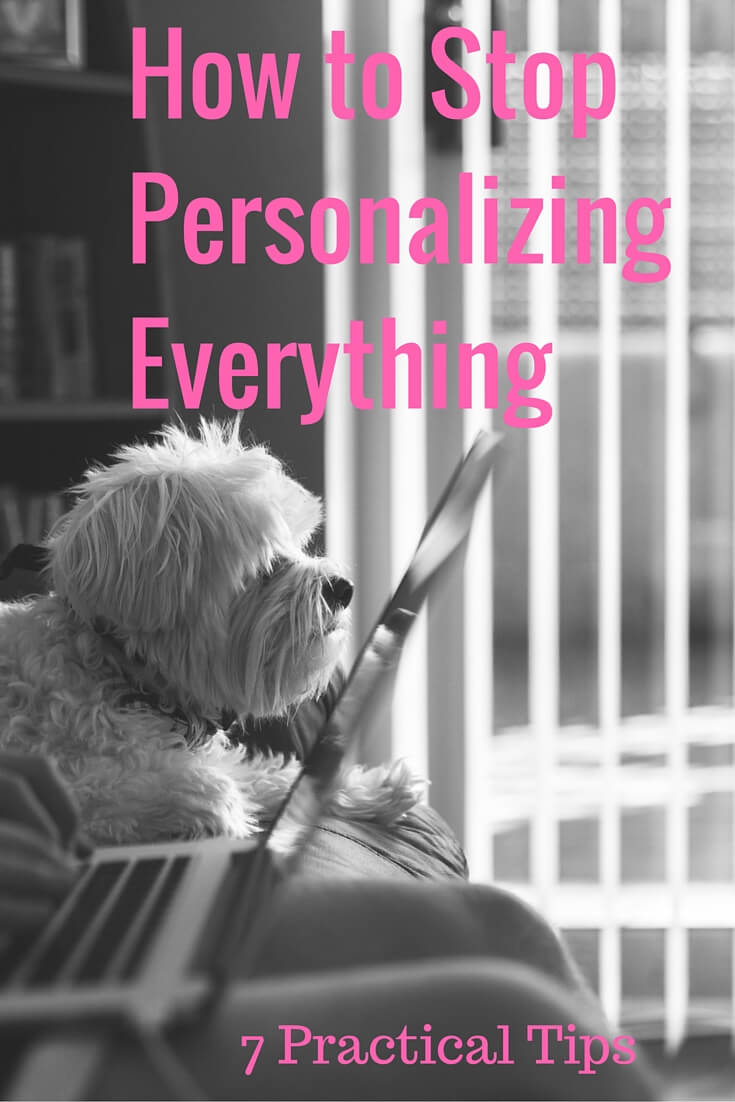7 Tips for Not Personalizing
If you want more tips for not overly personalizing events, comments and actions, and decreasing rumination, you’ll find heaps of simple, practical solutions in The Anxiety Toolkit, especially in chapter 5 (rumination) and chapter 7 (fear of feedback and criticism).
1. Don’t catastrophize knock backs
– If you get a rejection, it doesn’t mean you’re never going to be successful.
– If you get negative feedback on a piece of work, it doesn’t mean you have no capacity to become better at it or that you’re not talented.
If you find yourself personalizing, ask yourself whether you’re catastrophizing.
2. Be gentler to yourself about your imperfections, mistakes, and times when you’re not as good at something as you’d like to be.
If you can learn to be nicer to yourself about your imperfections, you won’t automatically jump to feeling attacked when other people make comments.
3. Frame not personalizing as a positive goal
For example, frame not personalizing at work as part of being professional and robust. Recognize that if you show that you don’t excessively personalize negative feedback (at work and in your personal relationships), people will be more likely to give you accurate feedback rather than give you confusing feedback because they’re attempting to protect your feelings.
4. Learn to label your emotions accurately
Emotions drive thoughts as much as thoughts drive emotions.
What emotions trigger personalizing for you? e.g., anxiety, embarrassment, disappointment, anger.
If you can label your emotional reactions accurately, you can then focus on doing some appropriate self care to deal with that emotion. Once the emotion subsides, so will the personalizing. A lot of the time, appropriate self care for emotions just involves accepting that you’re having the emotion and patiently waiting for it to pass. The things people do to try to “get rid of” their emotions usually end up causing more harm than good.
5. Put yourself in situations in which rejection is likely (but doesn’t have any major negative consequences)
Doing things like making requests when you expect you might be told “no” will help you learn that rejection often isn’t personal. Learning through doing behavioral experiments is the BEST way to change thoughts.
6. Don’t try to overcompensate for fears of not being liked by being excessively eager to please.
People who personalize often have attachment anxiety. If you act excessively eager to please, you’ll just end up believing that it’s the only way to be accepted. Be warm but have good boundaries.
7. Believe in your capacity to become someone that doesn’t excessively personalize things.
I see a lot of people who seem to have accepted that they’re doomed to a life time of being ruminators etc. You can change your cognitive style.




